Best milk alternatives: Top plant-based options for smoothies, cereals and hot drinks
Our guide to dairy-free milk alternatives will help you find the best product for your needs and preferences.
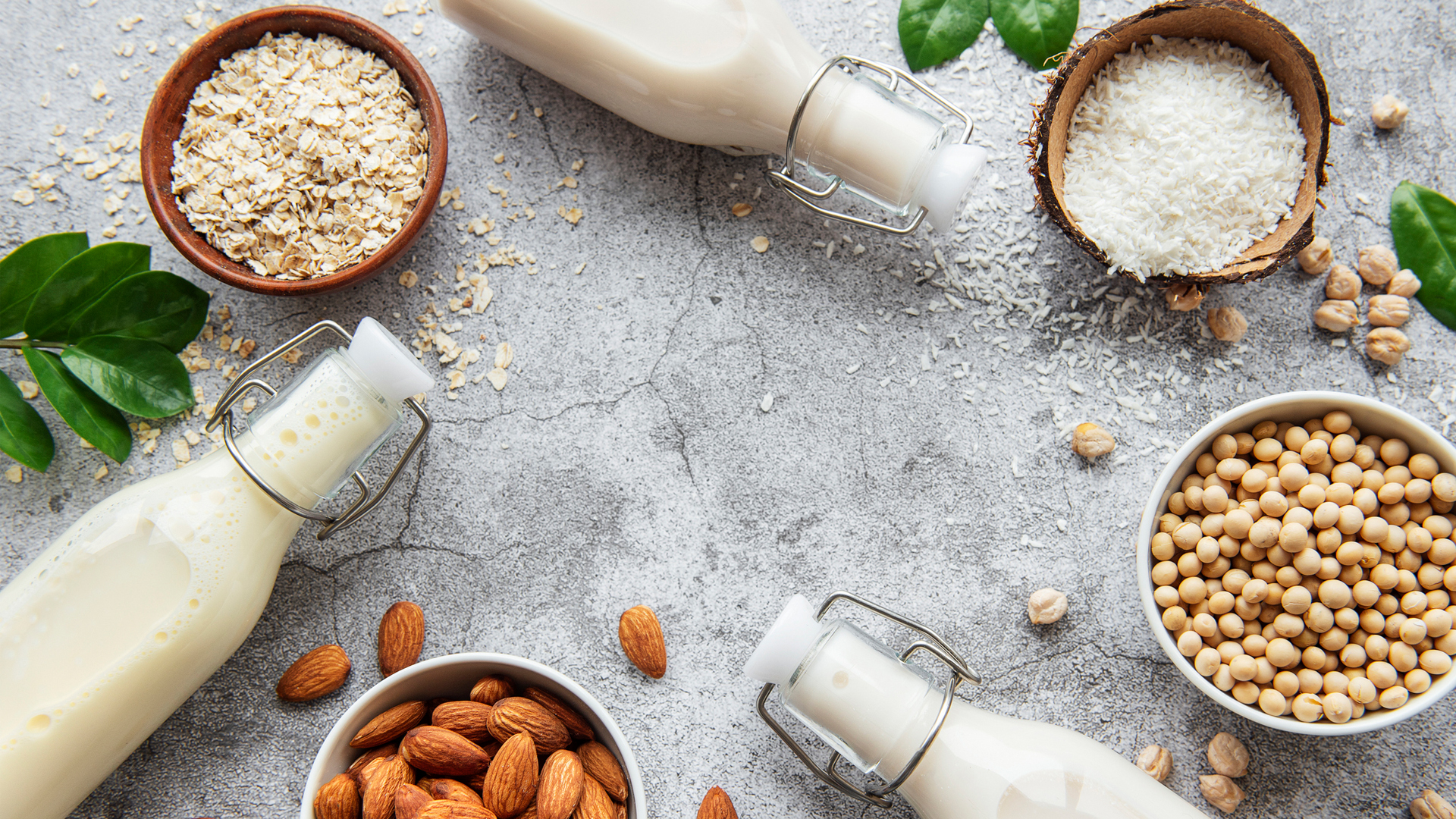
With more and more products entering the market, picking the best milk alternative is not as straightforward as it used to be. And there are many reasons why plant-based milks have enjoyed a boom in popularity. Those with lactose intolerance, milk allergy and inflammatory bowel disease may choose them for health reasons. For vegans, ethical concerns are often the primary motive, while some individuals simply don’t enjoy the taste of cow’s milk.
There’s also a growing worry that animal-based milks are not an environmentally-friendly choice. Livestock rearing generates a significant amount of methane – a potent greenhouse gas. It also consumes a lot of vital resources. According to an analysis by researchers at the University of Oxford, it takes nine times more land to produce dairy milk than a comparable amount of rice, soy, oat or almond milk.
Dr Michelle Braude, nutritionist and founder of The Food Effect, says: “Of all the dairy-free milks now available, from hemp to hazelnut, and oat to almond milk, deciding which plant-based milk to choose can be rather challenging. Gone are the days where they were a reluctant replacement for cows’ milk.”
What’s more, evidence suggests that plant-based milk alternatives can add a lot of value to our diets. They may not exactly match the nutritional value of dairy milk, but they provide a great deal of healthy dietary fat, antioxidants and compounds like phytosterols and isoflavones. Although there are many different varieties of dairy-free milks, each one of them will have something to offer to our health and wellbeing.
To help you decide which is right for you, we’ve created a complete guide to the best milk alternatives. Read on if you want to know what makes each milk unique, and how to choose them based on your preferences and health goals.
The best milk alternative
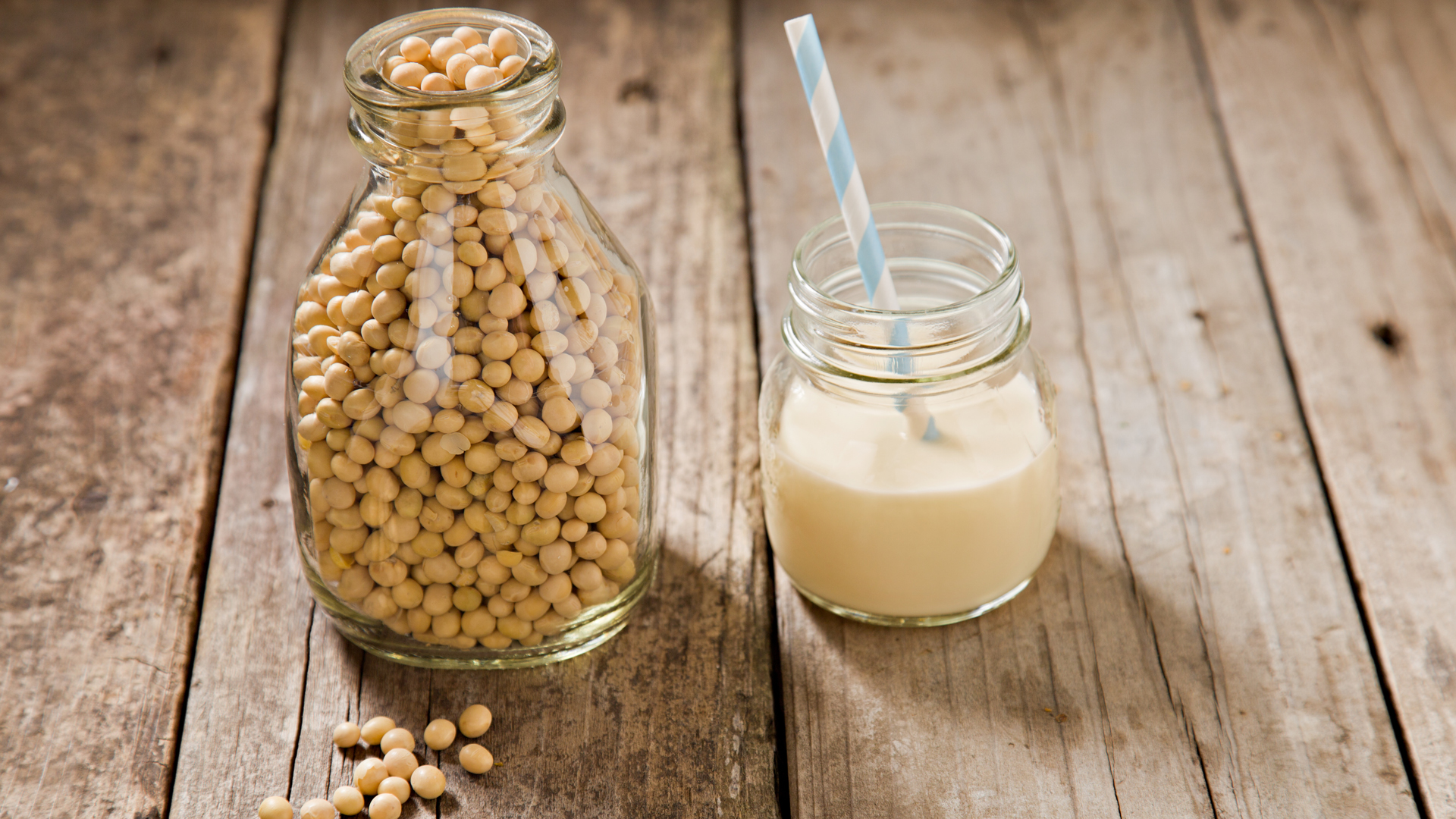
1. Soy milk
Reasons to buy
Reasons to avoid
Soy milk is a great all-rounder: it’s nutritious, widely available and thanks to its mild and creamy flavor, it pairs well with many different ingredients. You can easily find cartons of soy milk in most grocery shops and supermarkets, and they're usually relatively cheap. It’s also the only plant-based milk alternative that contains complete protein. In fact, one cup provides approximately 6.5g of this vital macronutrient.
Soy milk is also a great source of calcium, manganese and selenium, as well as plant compounds called isoflavones. Many brands also enrich their products with a host of vitamins and minerals, such as vitamin B12 and vitamin D. According to a review published in the Journal of Functional Foods, regular consumption of soy milk may help us to fight inflammation, lower blood pressure, improve blood lipid profile and reduce waist circumference.
However, there can be some downsides to this milk alternative. To start with, some individuals are allergic to soy. Certain products also come with high amounts of added sugars, especially if they’re flavored. There are certain concerns regarding soybean sustainability too. Soybeans are grown in large quantities around the world, primarily to feed the ever-growing numbers of livestock. As a result, they require vast amounts of land and water resources. Many environmental activists point out that swaths of Amazonian rainforest have been burned to make way for soy farms. The solution? When buying a carton of soy milk, make sure it was made out of sustainable crops grown in the USA or Canada.
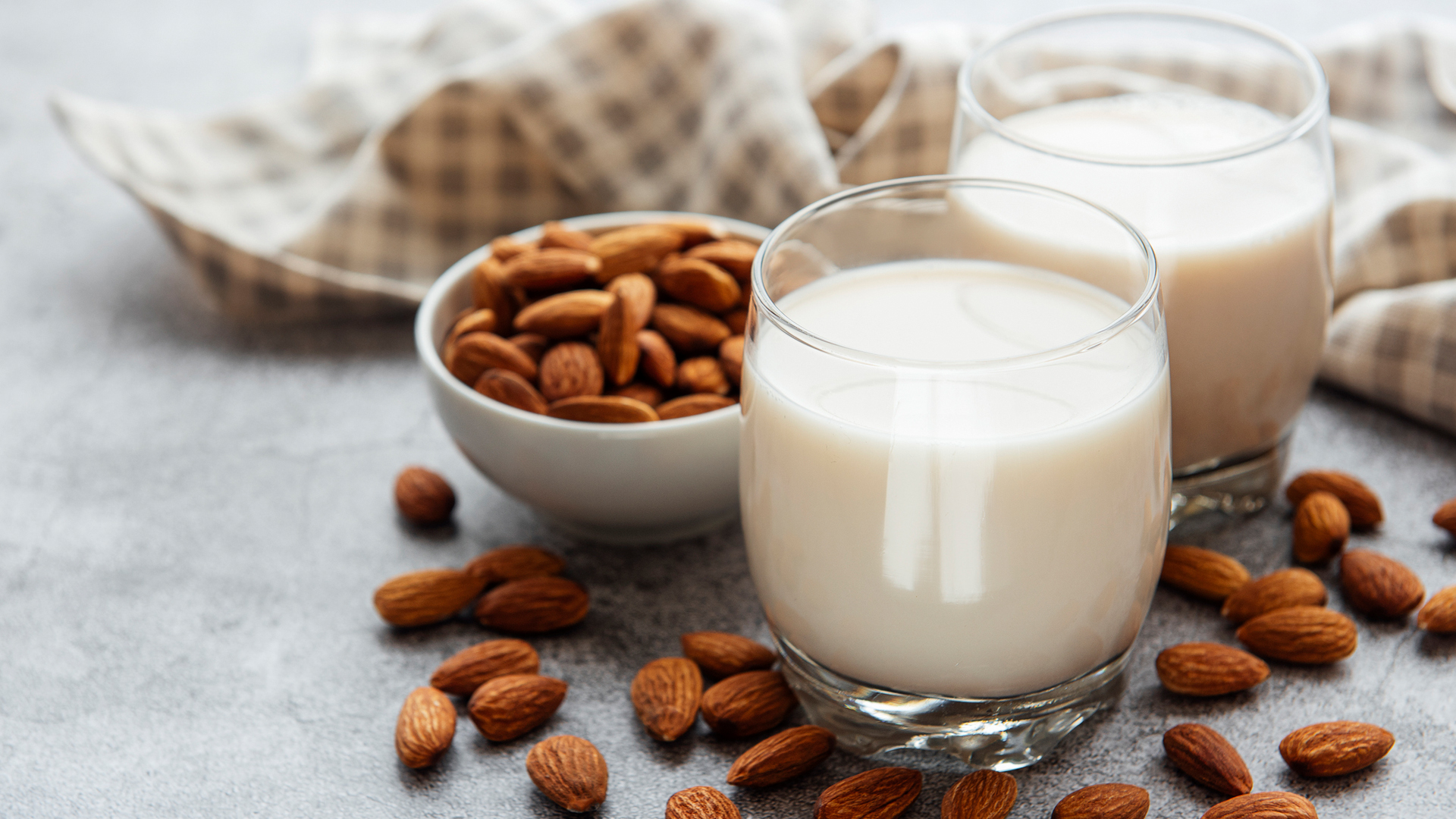
2. Almond milk
Reasons to buy
Reasons to avoid
Almond milk is one of the most popular plant-based milk alternatives in the US.
“It is very mild tasting, making it perfect to use in tea and coffee, as well as with cereals and oatmeal,” says Dr Michelle Braude, nutritionist and founder of The Food Effect.
It also has a good nutritional value. Almond milk may contain less than half of the protein provided by soy or cow’s milk, but at the same time it’s very low in calories, sugars and fats. As such, it can be a great choice for those on calorie-restricted diets.
“It’s rich in vitamin E and antioxidants, important for protecting the body’s cells against damage,” adds Braude.
Although not much research has been conducted regarding the health benefits of almond milk, many studies praise the health-promoting properties of almonds. Almonds are rich in dietary fats, but there’s no evidence that they contribute to weight gain or associated chronic diseases. Quite the opposite, multiple studies have shown that regular consumption of these nuts can help to lower blood pressure, improve blood lipid profile and have a beneficial effect on our cognitive abilities and gut health.
However, there are a few drawbacks to almond milk. One is its environmental footprint. Almond crops may not generate many greenhouse gasses or use a lot of land, but they require a significant amount of water to thrive. Farmers need to go through 130 pints of water to produce a single glass of almond milk. It’s also not suitable for those with nut allergies, and may not be suitable for young children due to its low macronutrient content.
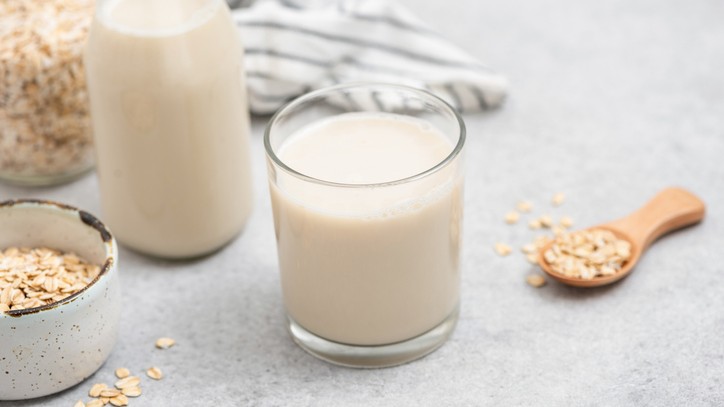
3. Oat milk
Reasons to buy
Reasons to avoid
If you’re looking for a plant-based alternative that has a similar taste and consistency to full-fat dairy milk, look no further than oat milk. Sweet and creamy, it works well with coffees, teas and breakfast cereals. It’s also a rich source of calcium, iron, phosphorus, B vitamins and vitamin D. One cup of this milk alternative provides a whooping 130 calories and 16g of carbohydrates, making it a great source of energy for active individuals. Thanks to such a high carbohydrate content, as well as a good texture, oat milk is potentially the best milk alternative for baking goods.
Oats contain many vital biologically active compounds, such as beta-glucans and avenanthramides. Beta-glucans is a fraction of water-soluble prebiotic fiber that has been shown to improve cardiovascular and metabolic health, as described in a review published in Nutrition Reviews, while avenanthramides may aid with reducing inflammation, easing skin irritation and fighting free radicals. What’s more, oat milk production has a relatively low impact on the environment. Oat crops don’t require a lot of maintenance, and if grown in rotation, they can actually reduce soil erosion and increase biodiversity.
Still, oat milk has a few disadvantages. Its beta-glucans may cause bloating, gas and stomach cramps in individuals with sensitive stomachs. Another aspect to consider is the high sugar content. Solid oats are rich in complex carbohydrates, but the milk production process may cause them to break down to smaller molecules. If a producer adds more sugar on top, this will elevate its carbohydrate content even further. As a result, oat milk may not be suitable for people on calorie-restricted diets or for patients with type 2 diabetes.
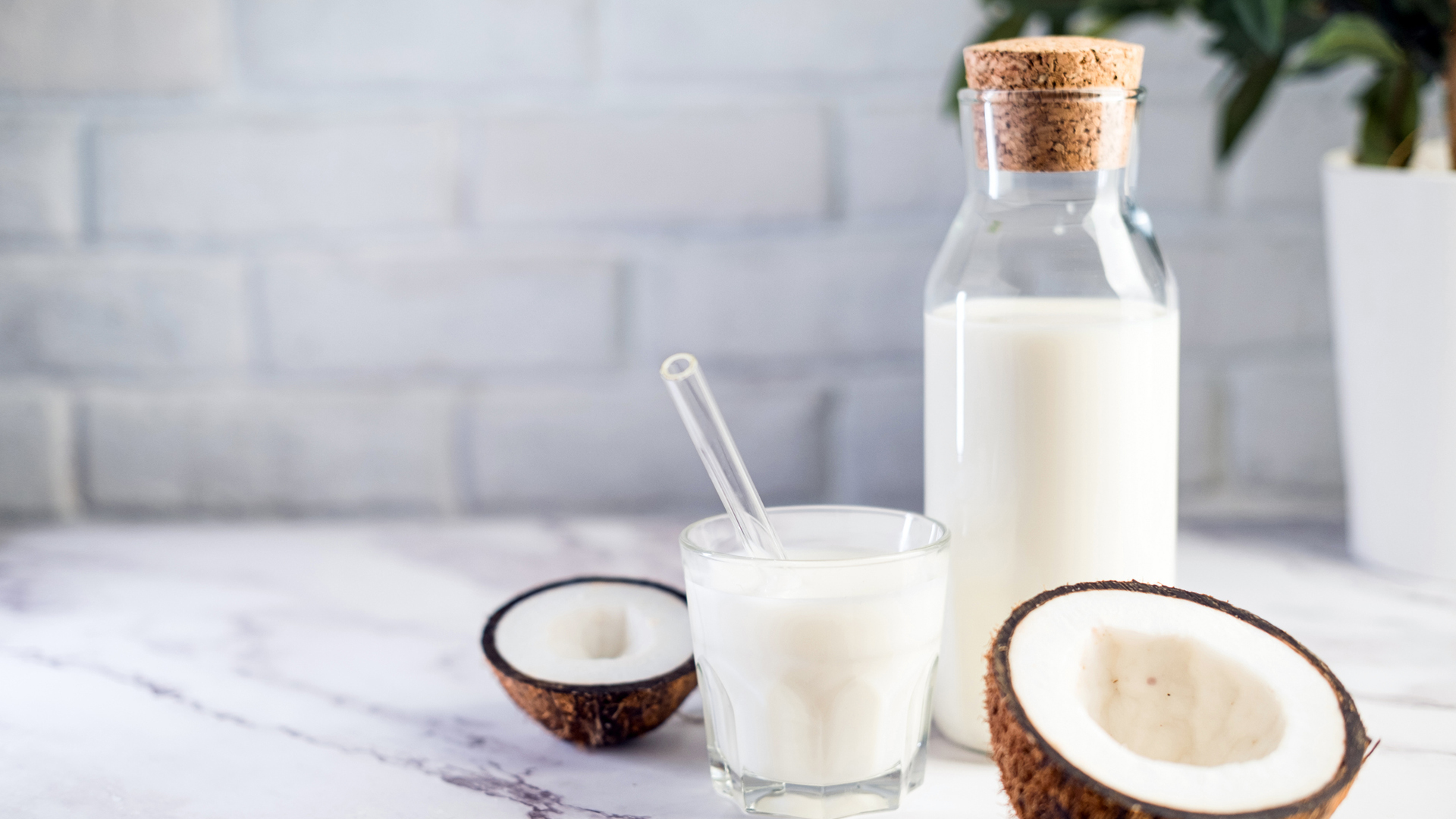
4. Coconut milk
Reasons to buy
Reasons to avoid
Coconut milk may not be as popular or widely available as soy or almond milk, but it does have a place as one of the best milk alternatives.
“It’s delicious in smoothies, healthy vegan desserts and breakfast recipes such as pancakes and chia seed pudding,” says Dr Braude. It’s also rich in calcium, vitamin D and vitamin B12, while providing less than 50 calories and 2g of carbohydrates per cup. As such, it can be a great choice for those on a low carb diet and people with type 2 diabetes.
What’s more, evidence suggests that dietary fats found in coconut milk may be highly beneficial to our health. According to a review published in the Journal of the Science of Food and Agriculture, coconuts are a rich source of medium-chain fatty acids, compounds that closely resemble the ones found in human breast milk. These nutrients have been shown to regulate blood lipids, improve cognitive function, reduce systemic inflammation and decrease the risk of developing metabolic conditions and certain types of cancer.
“Unlike regular saturated fat, medium-chain fatty acids have been credited with improved fat loss when consumed as part of a weight loss plan, as well as many other health benefits, such as improving the gut microbiome”, adds Dr Braude.
When it comes to sustainability, however, coconut milk doesn’t have the greatest reputation. With a growing demand for this fruit, vast rainforest areas are being cut down to make space for coconut farms. There’s also concern for the welfare of pickers and animals involved in the harvesting of this fruit. According to PETA reports, in some countries monkeys are routinely chained to posts and forced to shake coconut trees. So if you don’t want to contribute to these practices, always choose coconut milks that are certified as Fair Trade.
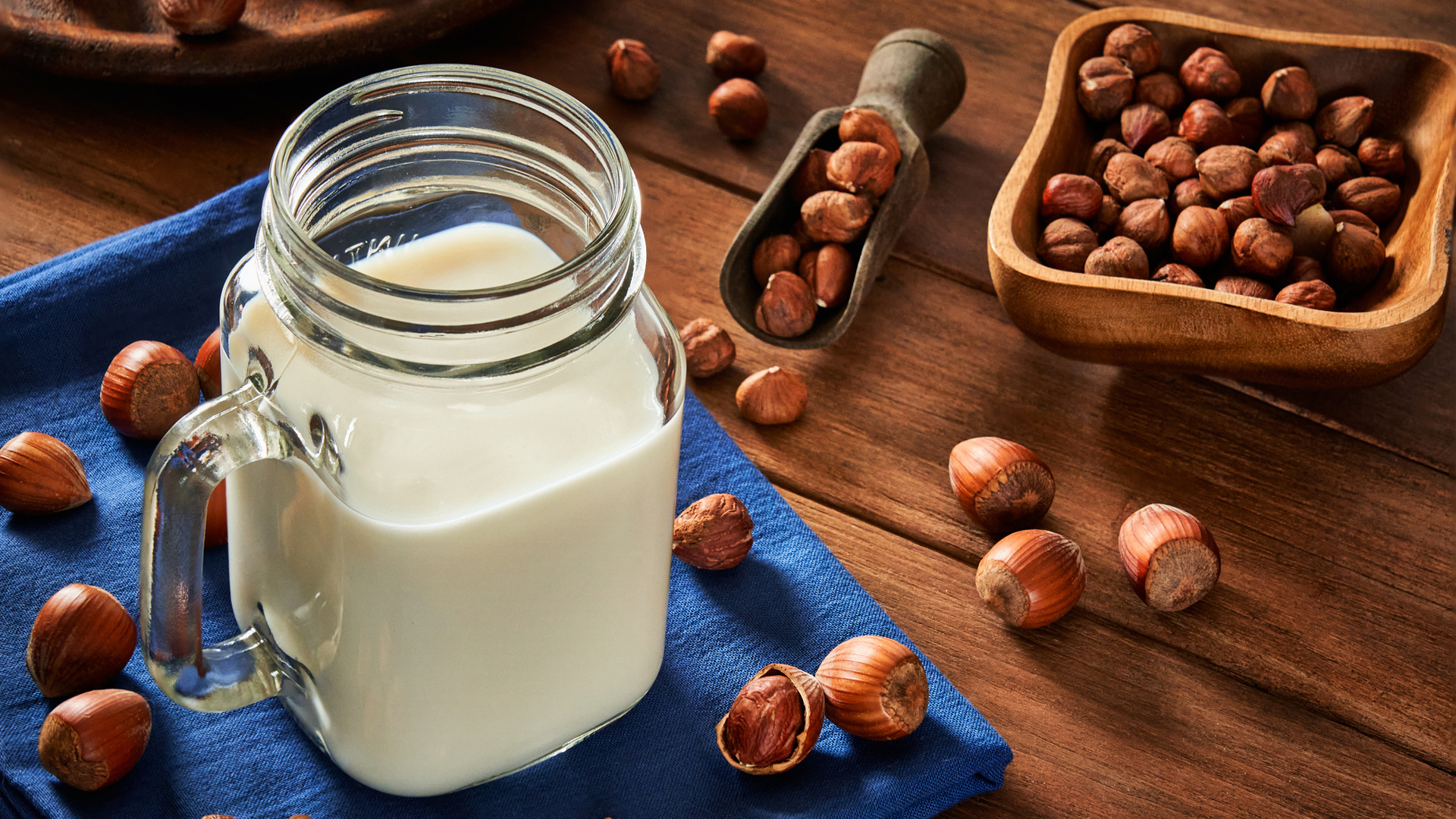
5. Hazelnut milk
Reasons to buy
Reasons to avoid
Hazelnut milk may be a relative newcomer to the world of dairy-free products, but it can already be considered a top contender for the title of best milk alternative. Not only does it boast an exceptionally thick, creamy consistency and an unique sweet, nutty flavor, it’s also rich in many health-promoting nutrients. Hazelnuts contain many important vitamins and trace elements, including vitamin E, copper, manganese, cobalt, iron and zinc. What’s more, hazelnut milk manufacturers usually enrich their products with calcium, B vitamins and vitamin A. One cup of hazelnut milk provides around 75 calories, while packing in healthy unsaturated fatty acids like omega-3 and omega-6.
The research into the health benefits of hazelnut milk itself is still in its infancy, but there's evidence behind the beneficial properties of hazelnuts. According to a review published in the International Journal of Environmental Research and Public Health, regular consumption can help with regulating blood lipids, lowering blood pressure, bringing down inflammation levels and improving body composition.
What’s more, hazelnut crops require less maintenance compared with other types of nuts – particularly almonds. They can thrive in harsh growing conditions and require no pesticides, which in turn helps to reduce groundwater pollution.
So what are the drawbacks? Hazelnut milks tend to be relatively expensive and may not be as widely available as other milk alternatives.
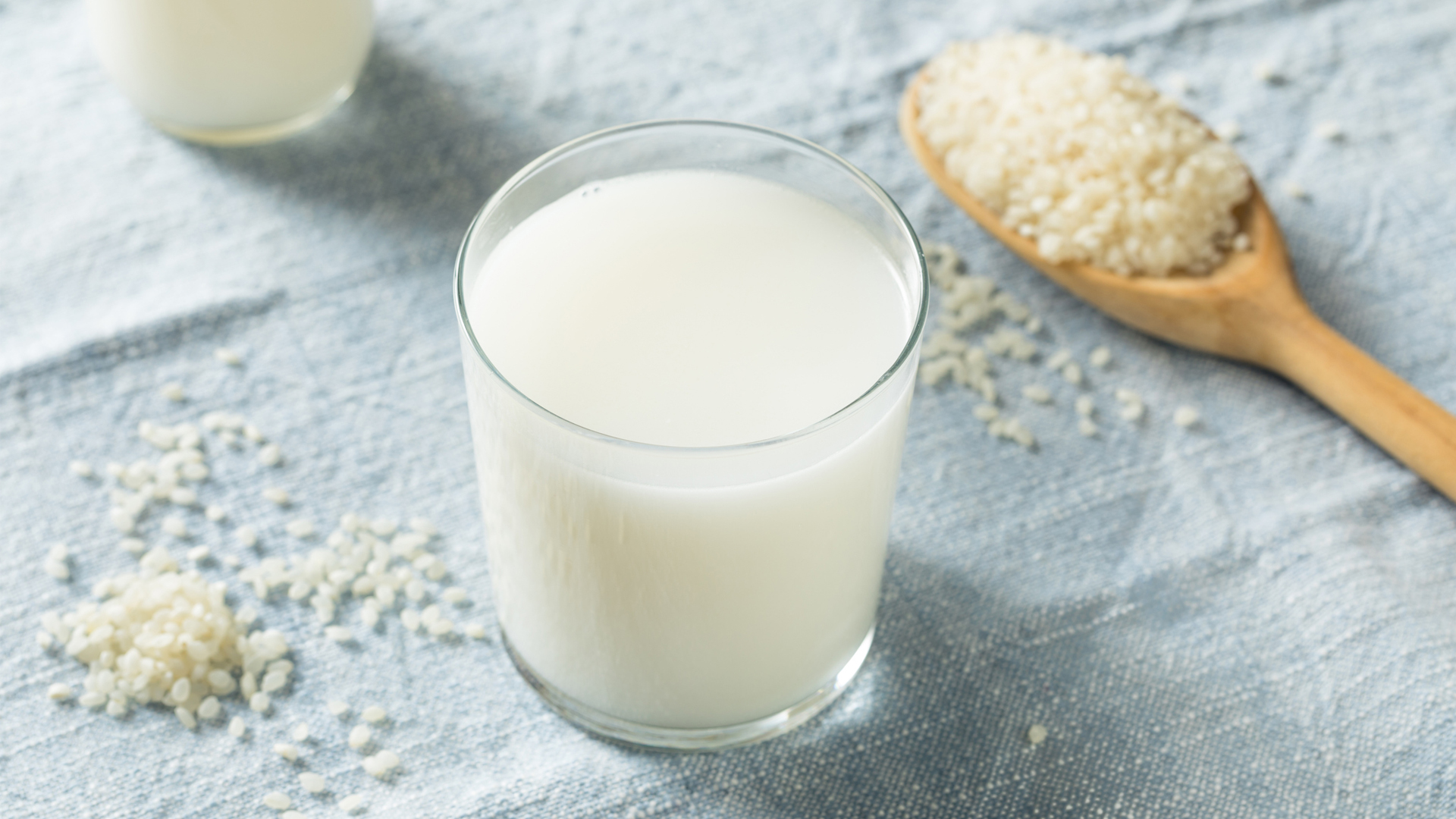
6. Rice milk
Reasons to buy
Reasons to avoid
Rice milk is nowhere near as popular as other milk alternatives, despite the fact that rice is one of the most consumed food staples worldwide. It also tends to be sweeter and more watery than other dairy-free beverages, which makes it a perfect fit for smoothies, shakes and coffees.
However, its nutritional profile may not be to everyone’s liking. One cup of unsweetened rice milk contains nearly 115 calories and almost 23g of carbohydrates, while providing little dietary fiber and protein. Rice also has a very high glycemic index (GI), meaning it can rapidly spike insulin levels, fuelling the development of insulin resistance and type 2 diabetes. This effect can be further enhanced by the liquid form of rice milk.
On the other hand, this grain is rich in many vitamins and minerals, particularly if it’s been genetically modified. According to a review published in the Foods journal, rice bran contains a great deal of antioxidants, including several active forms of vitamin E. And because its protein is hypoallergenic, rice products can be easily included in many elimination diets. Price is another advantage – rice milks tend to be one of the cheapest milk alternatives on the market.
However, there are few disadvantages. In the past, there have been many instances of severe malnutrition, especially protein deficiency, resulting from the use of rice milk. Although many rice beverages come with a host of additional nutrients, they’re not recommended for children or people with serious clinical conditions. What’s more, they’re not very environmentally friendly. Rice crops require a lot of water and produce a great deal of greenhouse gas emissions, particularly methane.
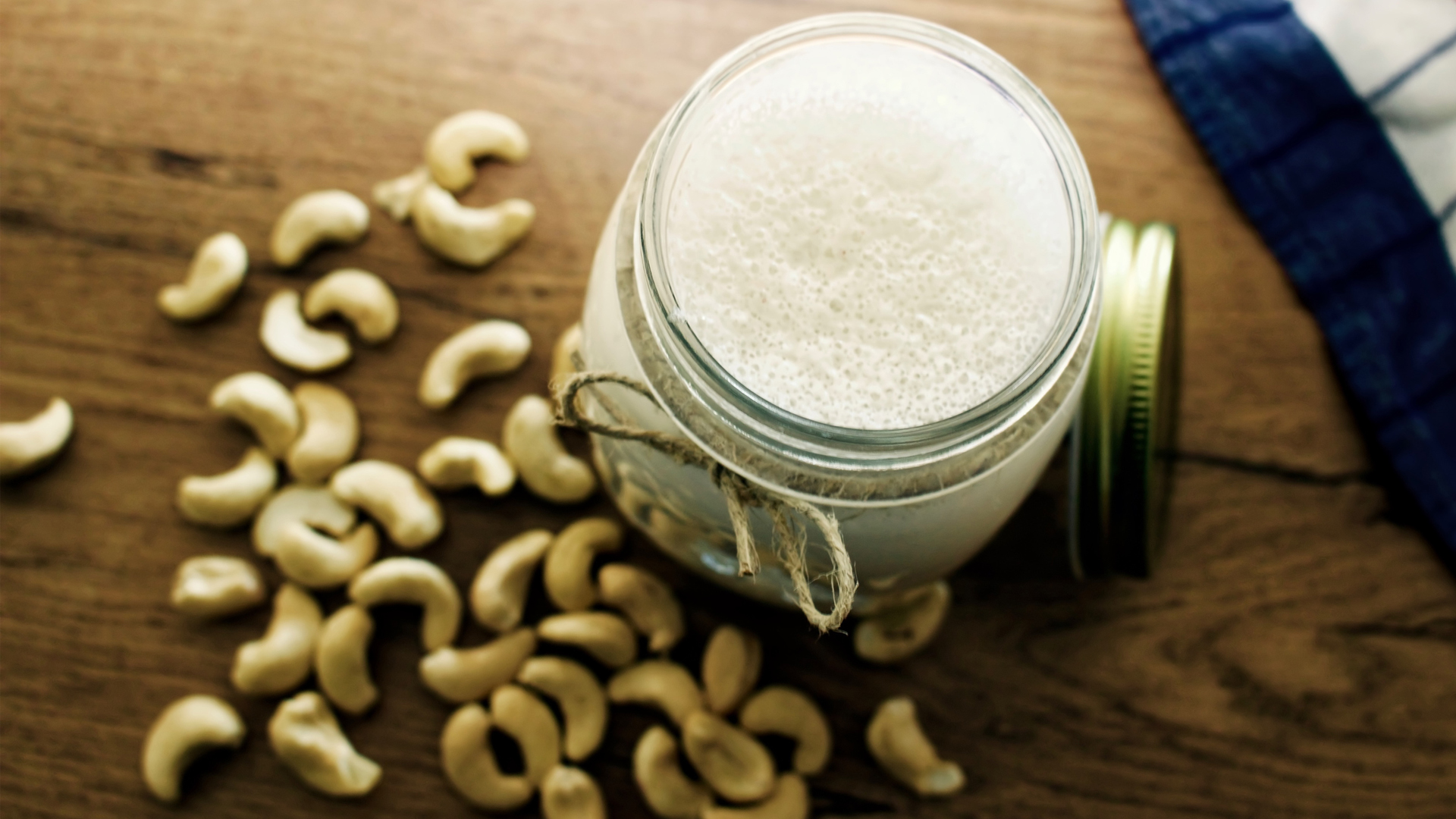
7. Cashew milk
Reasons to buy
Reasons to avoid
Cashew milk is fairly similar to almond milk in flavor and consistency, although it has a slightly creamier taste, rather than being as nutty. This makes it great in teas, coffees and smoothies. The two milks also share similar nutritional values. One cup of cashew milk provides roughly 60 calories, 3g of fat, 7g of carbohydrates and 1.5g of protein, as well as many important micronutrients. This milk alternative is particularly rich in vitamin K, iron, copper, magnesium and zinc. Cashews are also a great source of powerful antioxidants, such as carotenoids and phenolic compounds. Despite a high fat content, multiple studies have shown that regular consumption of these nuts doesn’t have any negative effects on our health, and can actually help to lower blood pressure levels.
What’s more, this milk alternative may be more environmentally-friendly than almond milk, because cashew crops use far less water and land. However, a large part of the cashew industry is notorious for human rights breaches and poor working conditions. If you don’t want to have a hand in these practices, always opt for products that are Fair Trade certified.
Price and availability could also pose some issues. Cashew milks tend to be more expensive and less available in stores than almond milk.
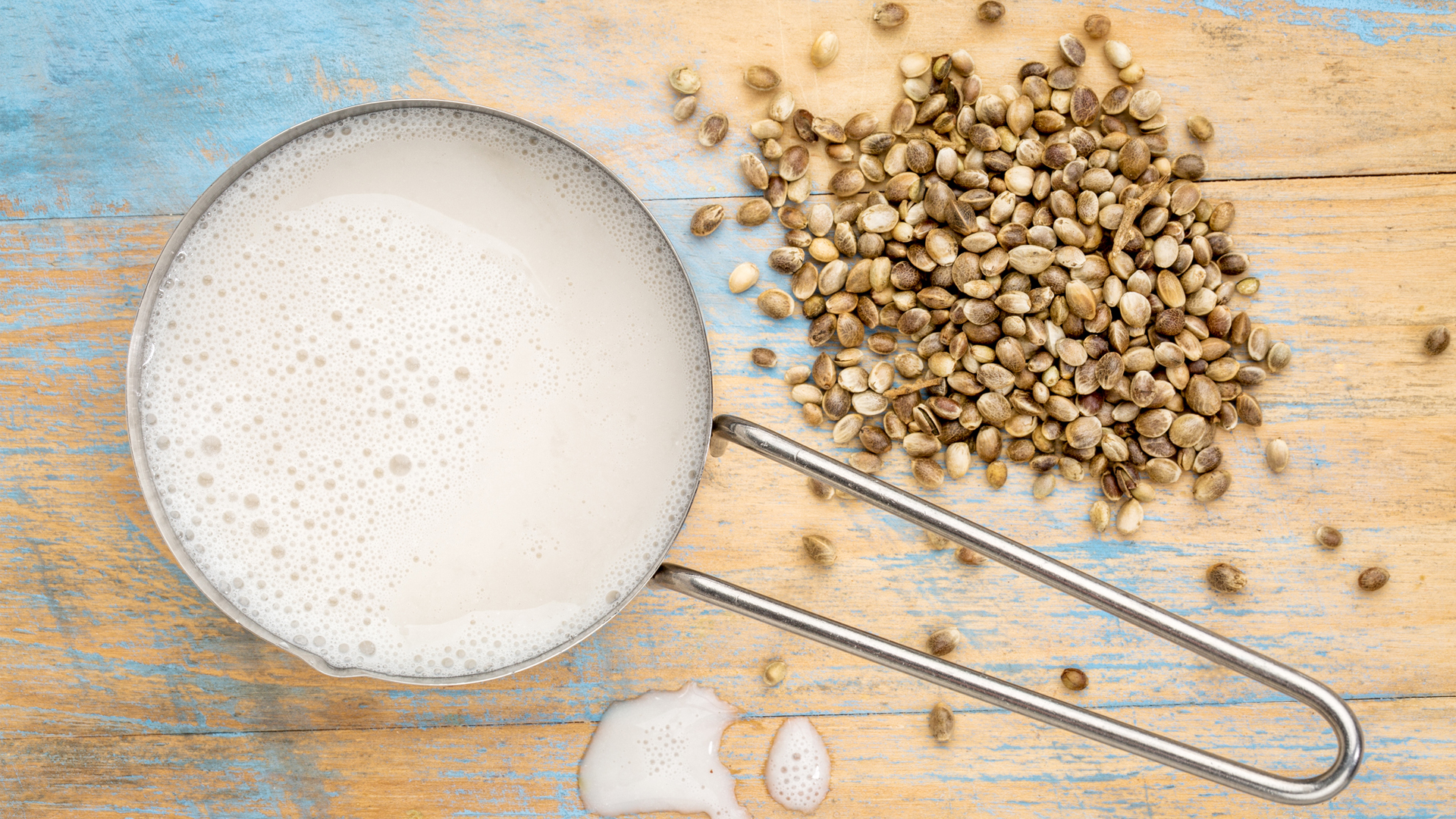
8. Hemp milk
Reasons to buy
Reasons to avoid
When it comes to the best milk alternatives, hemp milk is undoubtedly a rising star. Although it’s made out of edible fruits of the Cannabis sativa plant, this dairy-free beverage does not contain any psychoactive ingredients.
Hemp milk has a strong, earthy and slightly sweet flavor. “In my opinion, it looks and tastes the most similar to cow’s milk – and also has a slightly sweet taste despite containing no added sugar or artificial sweeteners,” says Dr Braude.
But it’s not necessarily the taste that is driving up sales of hemp milk. Hemp foods are not only nutritional powerhouses, they’re also great for the environment. A cup of hemp milk provides around 70 calories, less than 2g of carbohydrates and nearly 5g of healthy polyunsaturated fatty acids like omega-3 alpha-linolenic acid and omega-6 linoleic acid.
“One cup of hemp milk contains more omega fatty acids than a tuna steak,” adds Dr Bruade. It’s also rich in iron, phosphorus, potassium, magnesium, zinc and many powerful antioxidants. There’s even evidence that phytonutrients specific to hemp seeds can suppress the development and spread of cancer cells. Furthermore, hemp is a highly sustainable crop – it doesn’t damage the soil it grows on, it doesn’t use a lot of resources and it can be cultivated without resorting to harmful pesticides.
On the other hand, most hemp milks have a very low protein content. They also tend to be fairly expensive and difficult to find in regular shops, but this is changing as hemp milks become more popular.
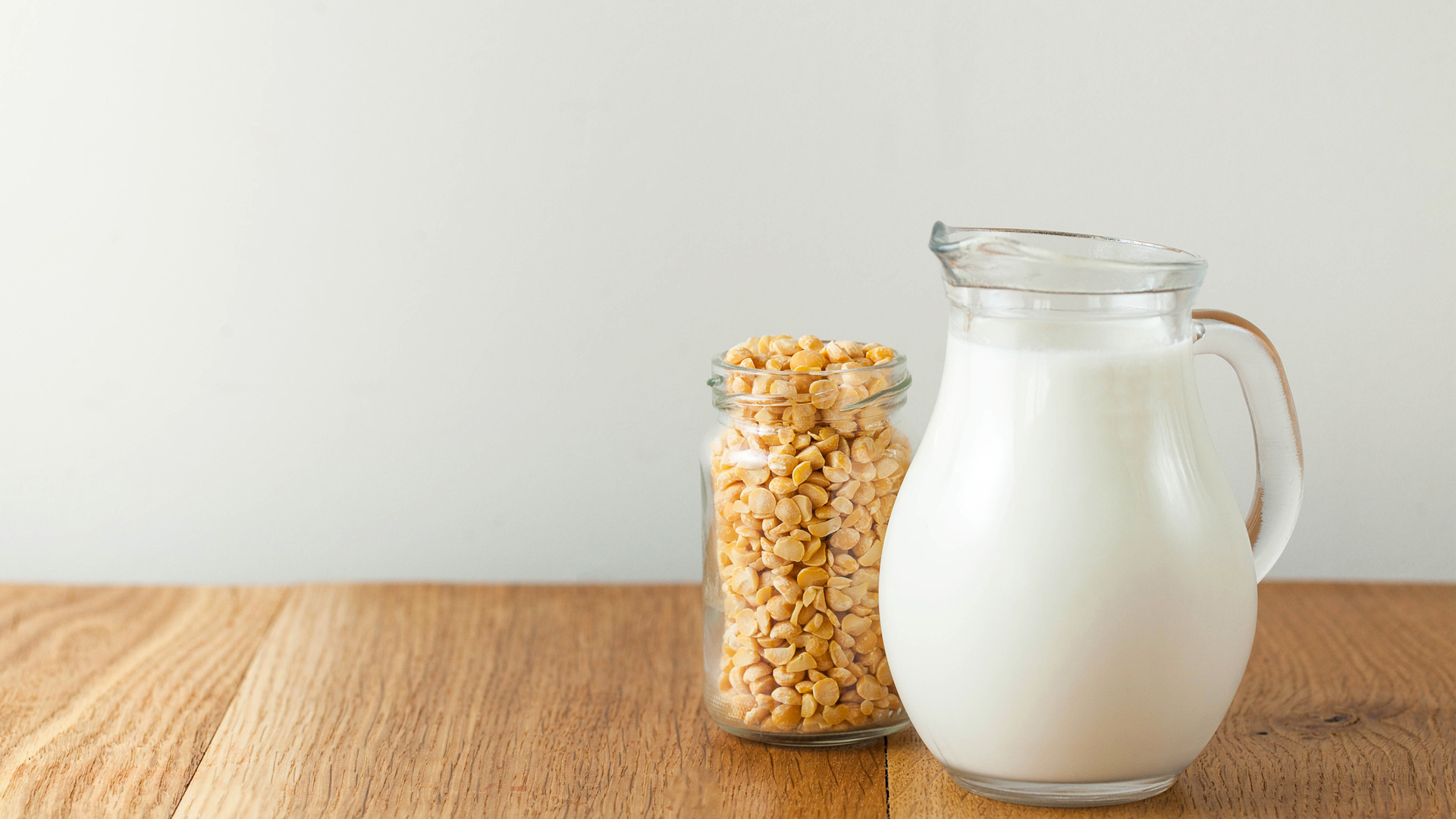
9. Pea milk
Reasons to buy
Reasons to avoid
When thinking about best milk alternatives, chances are pea milk won’t even cross your mind. But with its exceptionally high protein content and a long list of potential health benefits, pea milk deserves attention. Pea milk has a creamy consistency and a slightly sweet, ‘chalky’ flavor, fairly similar to cow’s milk. One cup of pea milk contains around 70 calories, 4.5g of dietary fat and almost 9g of high quality protein, while providing little to no carbohydrates. It’s also a rich source of vitamin D, vitamin A, calcium, potassium and iron.
Peas contain many different important phytonutrients with strong antioxidant and anti-inflammatory properties, such as tannins and flavonoids. It’s also worth mentioning that pea protein is hypoallergenic and may have a positive impact on blood pressure and gut health, as described in the Comprehensive Reviews in Food Science and Food Safety journal. Pea milk’s nutritional value makes it a perfect choice for active individuals, bodybuilders and individuals with food allergies.
Pea milk is also one of the most sustainable milk alternatives. It doesn’t need nearly as much water and fertilizer as almond milk, and it generates lower greenhouse emissions than most plant-based alternatives. On the other hand, it’s still a novel product so there may be some issues regarding the price and availability of pea milk.
How to choose the best milk alternative
Fitness goals
What and how much you eat has a big impact on your exercise abilities and performance. So it makes sense to choose your plant-based milk alternative based on your personal fitness goals.
If you want to lose weight, choose products that are relatively low in calories, dietary fats and carbohydrates, such as almond or coconut milk. If you have a nut allergy, or simply can’t stomach the taste of almonds and coconuts, go for unsweetened, ‘diet’ options of other milk alternatives instead. Many brands will offer at least one low-calorie option in their dairy-free range.
If you want to gain weight or build muscle, you’ll be better off with products that are high in protein and carbohydrates, such as soy, pea and oat milk. It’s also becoming increasingly common to see milk alternatives enriched with additional protein – Soya High Protein from Alpro is a great example. Mix your dairy-free beverage with a scoop of the best vegan protein powder to give your muscles a hefty protein boost.
Lastly, if you are an endurance athlete in search of a good energy source, focus on the calorie and carbohydrate content of your milk. Oat and rice milks might be best suited for your needs.
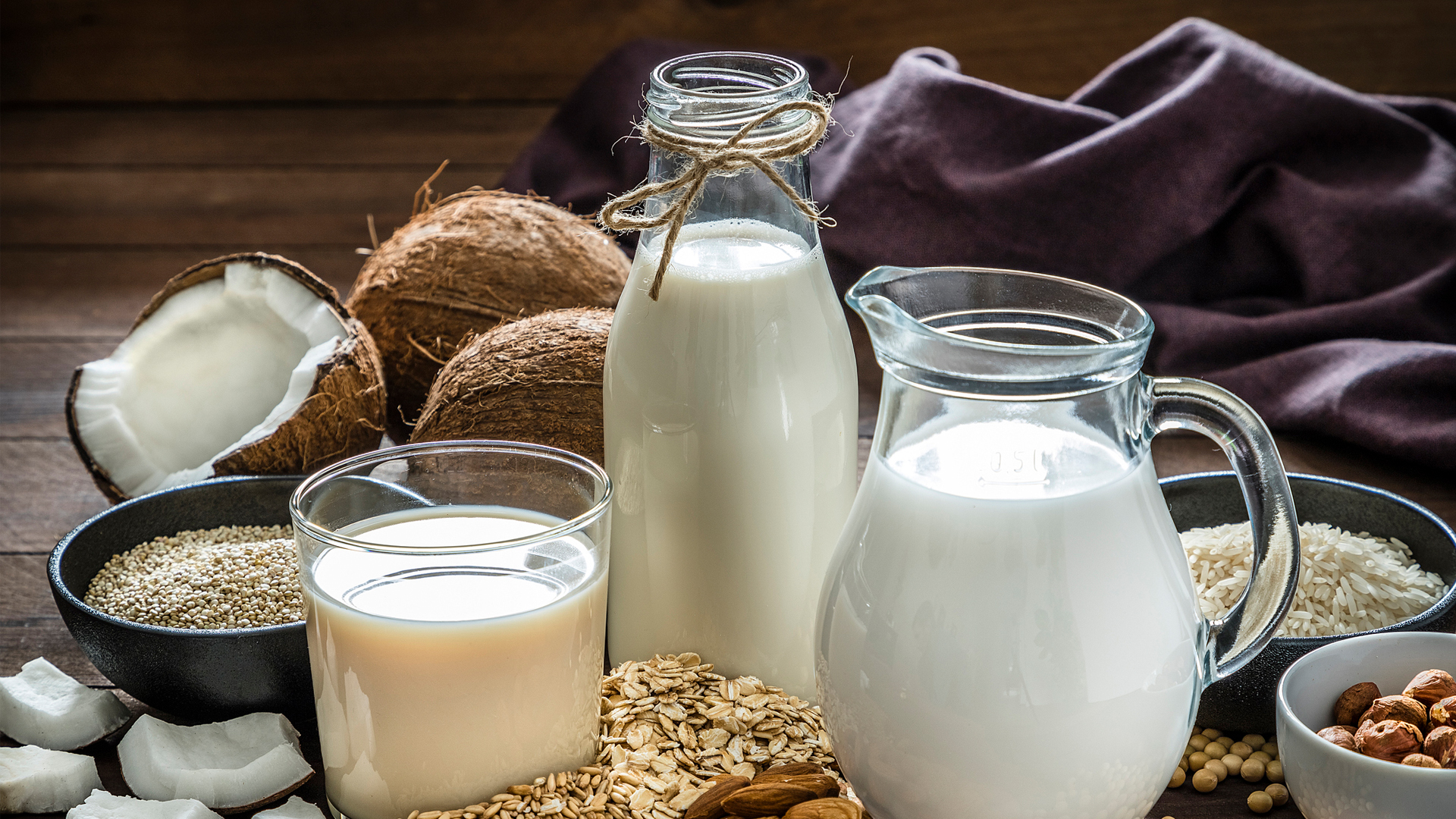
Flavor and consistency
Choosing the best milk alternative will largely depend on your personal preferences and how you intend to use it. Thanks to their relatively neutral flavor, soy, rice and pea milks are great all-rounders, suitable for general use. Nut-based milks tend to be creamier, thicker and smoother than others, so they may be more suitable for breakfast cereals, teas, coffees, desserts and protein shakes. At the same time, they may clash with fruity or savory flavors in some dishes.
The flavor and consistency of a single milk variety may not be the same across different brands. These properties will be closely tied to the price of your milk of choice, as well as all the manufacturing processes used to produce it. If you’re leaning towards a certain plant-based milk variety, make sure to sample several different brands to find a product that ticks all your boxes. Above, we’ve rounded up our top pick for each type of milk alternative.
Nutritional value
Many plant-based milks are fortified with additional vitamins and minerals, so that they match the nutrients found in cow’s milk. Calcium is a particularly crucial nutrient for vegans as plant-based foods may not provide much of it.
“Calcium is an essential nutrient for our bodies, not just for bone and teeth health, but to maintain a healthy weight too”, explains Dr Braude. “Cutting back on the amount of calcium-containing foods you eat can actually signal the body to make more fat cells. Consuming sufficient calcium rich foods can help to protect against osteoporosis in later life. It also helps to maintain muscle mass, which improves metabolism, helping you to burn calories more efficiently throughout the day.”
Dr Braude also advises to check whether your milk is enriched with vitamin D. “Vitamin D is another essential nutrient that is strongly linked to calcium, and it is required to regulate calcium absorption. Thankfully, most plant-based milks are fortified with calcium and Vitamin D, making them a real win-win. Make sure to check the labels of any dairy-free milks and yogurts you buy to ensure they’re fortified with calcium and Vitamin D.”
| Header Cell - Column 0 | Soy milk | Almond milk | Oat milk | Coconut milk | Rice milk | Cashew milk | Hazelnut milk | Hemp milk | Pea milk |
|---|---|---|---|---|---|---|---|---|---|
Calories | 105 | 39 | 120 | 45 | 115 | 24 | 90 | 140 | 70 |
Fat | 3.6g | 2.5g | 5g | 5g | 2.3g | 2g | 9g | 6g | 4.5g |
Carbohydrates | 12g | 3.4g | 16g | 2g | 22g | 2g | 1g | 19g | 0g |
Fiber | 0.5g | 0.5g | 0g | 1.9g | 0.7g | 0g | 0g | Row 3 - Cell 8 | 0g |
Sugars | 8.9g | 2g | 7g | 0g | 12.9g | 0g | 1g | 12g | Row 4 - Cell 9 |
Protein | 6.3g | 1g | 3g | 0g | 0.7g | 1g | 2g | 4g | 8g |
- Related: Is milk good for your teeth?
Sugar content is another important issue. Many brands will offer sweetened and unsweetened versions of the same milk alternative. However, check whether the diet option contains any artificial sweeteners to make up for the lack of natural sugars. They may also have a more watery consistency.
Some milk alternatives may contain high levels of sodium (salt). Scientists from the Nutrients journal pointed out that salt is the most commonly found added ingredient in plant-based beverages. Many processed vegan and vegetarian foods are also high in this ingredient. When you combine them together, it may be quite easy to exceed the World Health Organization’s guidelines stating that an adult should not eat more than 2g of sodium (5g of salt) a day. If you’re concerned about your salt consumption, coconut milk could be the best choice for you, as it tends to contain less of it. However, always check the ingredients label for the sodium or salt content, as it may have been added during the manufacturing process.
Lastly, consider how the best milk alternative will fit into your diet. If you start your day with a hot bowl of oatmeal, drinking oat milk on top may not bring you any more health benefits. Similarly, if you regularly snack on nuts, choosing a soy or pea milk may add more value to your diet than a nut-based one. Mixing and matching different food groups will help you to get all of the necessary nutrients.
Is a milk alternative better for you?
Cow's milk is a rich source of essential nutrients, particularly iodine, calcium, vitamin D and potassium. It also provides a great deal of complete protein. So how do plant-based milk alternatives stack up against cow’s milk, especially as they tend to be more expensive and less available in shops?
The only milk alternative that truly compares to cow’s milk is soy milk. Other plant-based beverages may not provide the same type and quantity of nutrients. This is particularly important to keep in mind when offering milk alternatives to young children, the elderly and other vulnerable individuals. In many cases, supplementation may be necessary to fill the gaps.
Milk alternatives are also more processed than cow’s milk, so they may have more filler ingredients, thickeners, preservatives and flavoring added to them. Cow’s milk is also generally lower in sugars than plant-based alternatives.
So what’s the take-home message? Moderation and smart choices.
“Whilst I am in no way anti-dairy – I myself consume real milk and dairy foods – I just as much believe that one can meet all the same nutritional needs without it,” says Braude. “It just requires a bit more thought and knowledge.”
Sign up for the Live Science daily newsletter now
Get the world’s most fascinating discoveries delivered straight to your inbox.

Anna Gora is a health writer at Live Science, having previously worked across Coach, Fit&Well, T3, TechRadar and Tom's Guide. She is a certified personal trainer, nutritionist and health coach with nearly 10 years of professional experience. Anna holds a Bachelor's degree in Nutrition from the Warsaw University of Life Sciences, a Master’s degree in Nutrition, Physical Activity & Public Health from the University of Bristol, as well as various health coaching certificates. She is passionate about empowering people to live a healthy lifestyle and promoting the benefits of a plant-based diet.










